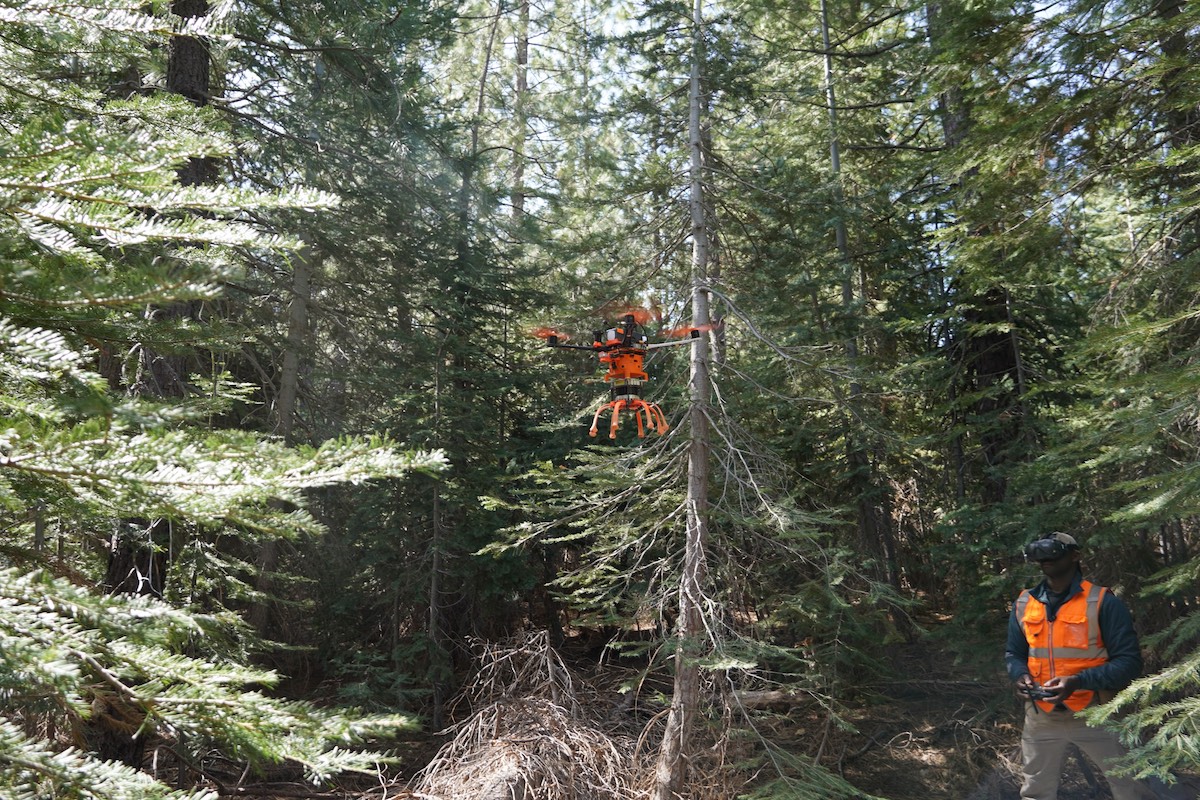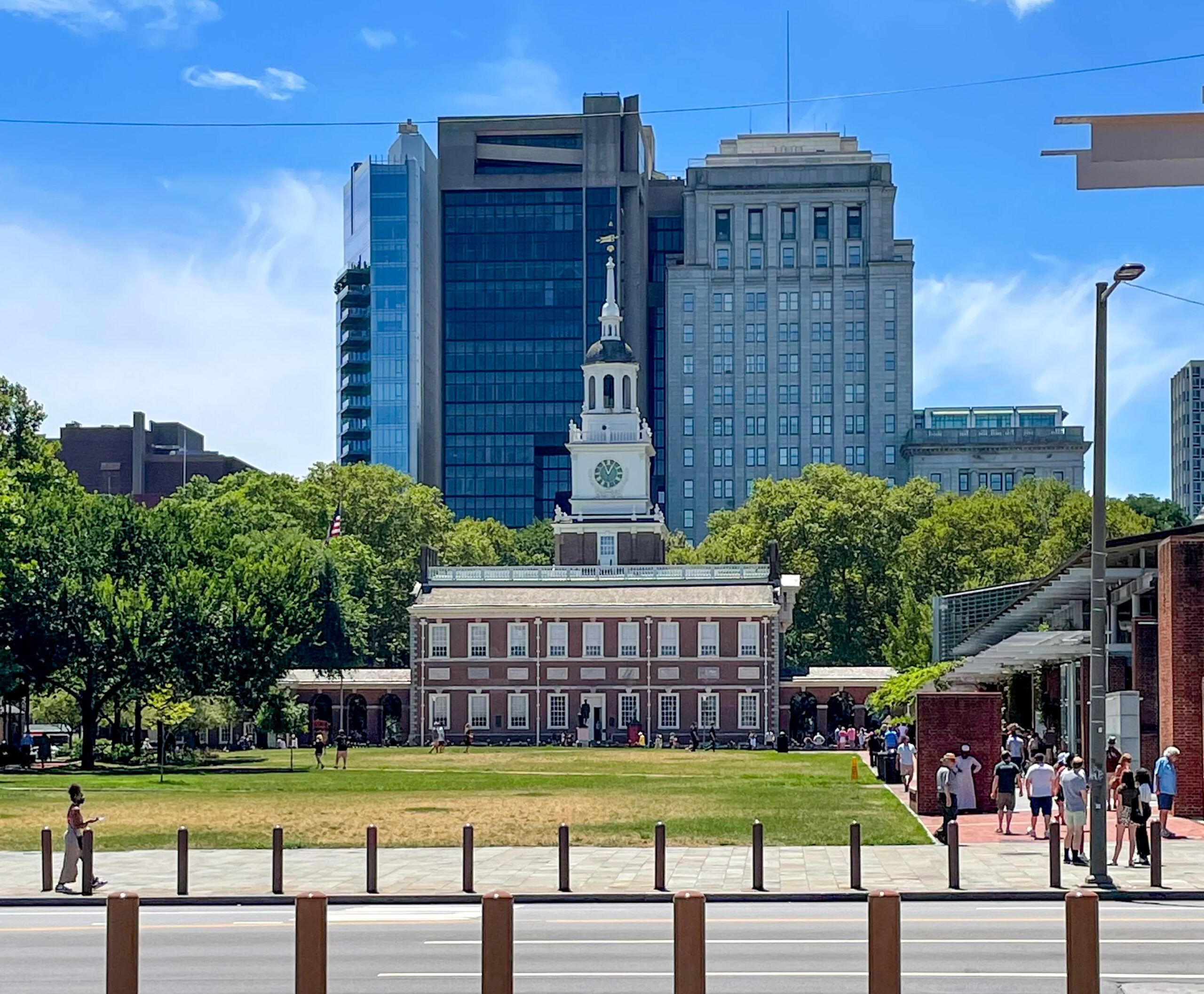Agriculture tech companies are often using technology to solve a thousands-of-years-old problem or streamline a complicated environmental system. That means it’s also one of the industries that can have a hand in positively affecting climate change, said Steven Chen, founder of Treeswift.
Chen, who came to robotics in a roundabout way, liked the potential impact and sense of possibility that a tech career could bring.
“I didn’t know how to code or anything about systems,” he told Technical.ly. But around age 25, Chen made an early-career change from finance, and applied to University of Pennsylvania for graduate school, and in 2022, graduated with his P.hD. in computer science.
“At the time I was thinking, ‘What got me really excited?'” Chen said. “I liked that tech could take you down different paths — entrepreneur, professor, research institutes. It exercises many parts, and you can be creative with it.”
Growing an agtech startup
While at Penn, a friend studying forestry introduced Chen to some of the “exciting” data collection problems the industry was dealing with. For instance: Measuring the volume or density of trees was a manual, “measuring tape” task.
“It was really interesting from robotics perspective,” Chen said. “How do you get the data you need at scale?”
So Chen began building what is now Treeswift, a forestry mapping startup that collects volume and density data for forest areas. He recruited some friends as cofounders (Elizabeth Hunter, COO and Michael Shomin, CTO) and officially launched the company as CEO in 2020. The startup’s main customers are parks, land owners, companies or organizations that need a volume of trees for timber or for carbon emission offset data. Treeswift deploys drones with sensors to capture and then analyze tree data, while moving in and around tree lines and navigating rugged environments. Its technology captures, processes and analyses the data for its clients.
The company, now at about 30 employees, is based out of Pennovation Center‘s GRASP Lab, though it has employees across the country tending to forest sites; Treeswift has a concentration of clients in the Southeast, Pacific Northwest, the Northeast and California. Earlier this year, the startup raised a seed round, with $6 million raised to date.
Philadelphia as robotics hub
During May’s International Conference on Robotics and Automation, held this year in Philly, co-organizer and Penn’s dean of engineering Vijay Kumar (who was Chen’s advisor through his graduate degree) said that Philadelphia has the potential to be a great robotics city, though it doesn’t yet compete with regions like Boston or the Bay Area.
Chen said that many of his friends indeed moved to the West Coast upon graduation, but that the Pennovation Center and Philly is a good home for the company. They have a broad team, he said, made up of roboticists, computer machine learners, foresters, GIS analysts and operations — and they’re currently hiring.
“To make a successful robotics company, you don’t just hire roboticists,” Chen said. “You need lots of different talent, and Philly has been good in finding that talent and building a team.”
Serving the agtech space has helped make some of the impact the now-CEO aimed for when he switched careers years ago.
“Thinking about what our data can do for carbon offsetting and creating fundamental technology to see the planet a different way, that’s really exciting,” he said, “the fact that the potential of what we’re doing could affect that space.”







